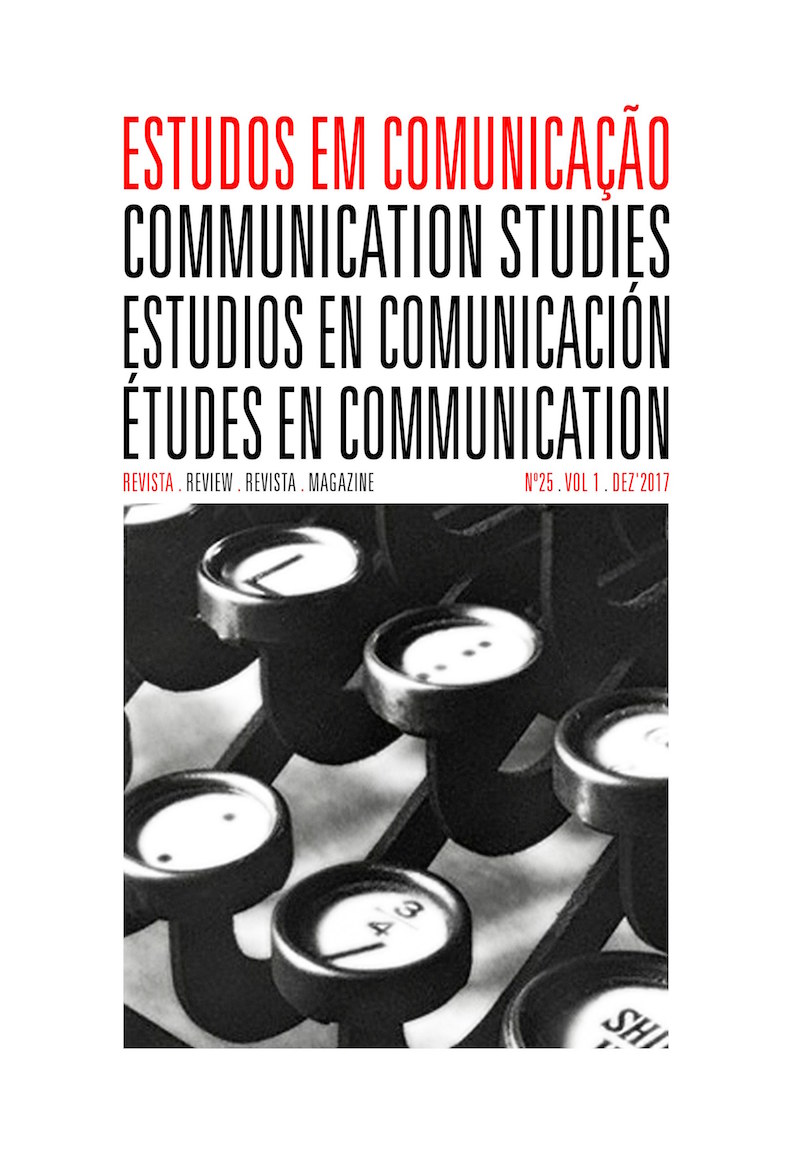From Schutz to Dewey: communication and everyday life
Mots-clés :
communication, philosophy, everyday, Schutz, DeweyRésumé
This paper presents and discusses the correlations between John Dewey’s pragmatist philosophy and Alfred Schutz’s phenomenological philosophy – both as contributions to building up a communicational paradigm useful as an epistemological grounding and a methodological framework for Communication Sciences. We discuss the possible knowledge present in the relationship between communication and philosophy starting from the seminal notions of communication for Schutz and Dewey. These authors’ ideas relate to each other in the lifeworld or the natural environment, in the everyday life and in action. The conclusion of this paper demonstrates the application of philosophical notions to communication studies, to the perception of technology and to techniques related to technology, moving beyond a reductive and incomplete instrumental perception. Technology and techinique are all the intelligent means by both man’s and natural environment’s energy are directed and used to fulfill the human needs; and these are not limited to a few exterior forms nor comparatively mechanical.
Références
Correia, J. C. (2005). A teoria da comunicação de Alfred Schutz. Lisboa: Livros Horizonte. Dewey, J. (2010). Arte como experiência. São Paulo: Martins Fontes. Dewey, J. (2009). A valoração nas ciências humanas. Campinas (SP): Autores Associados. Dewey, J. (1974). Experiência e natureza. São Paulo: Abril Cultural (Os Pensadores) Dewey, J. (1970). Liberalismo, liberdade e cultura. São Paulo: Editora da USP.
Dewey, J. (1964). Teoria da vida moral. São Paulo: IBRASA.
Dewey, J. (1959). Como pensamos. São Paulo: Companhia Editora Nacional.
Dewey, J. (1950). Lógica. Teoria de la investigación. México: Fondo de Cultura Económica.
Fesmire, S. (2015). Dewey. Oxford: Routledge.
França, V. R. V. (2001). Paradigmas da comunicação: conhecer o quê?. Ciberlegenda, Niteroi, UFF, v. 5.
Goffman, E. (1974). Frame analysis: an essay on the organization of experience. Londres: Harper and Row.
Hickman, L. (July 30, 2012). John Dewey’s Legacy for the 21 Century. The Chronicle of Higher Education. Disponivel em: http://chronicle.com/article/ADamning-Portrait-of/133253/?cid= at&utm_source=at&utm_medium=en.
Hook, S. (2000). John Dewey. Semblanza intelectual. Espanha, Barcelona: Paidós. Kestenbaum, V. (1977). The Phenomenological Sense of John Dewey. Habit and Meaning. New
Jersey: Humanities Press.
Oliveira, P. P. (2014). Contribuicoes do pragmatismo e da fenomenologia social para um roteiro de análise da globalidade do processo comunicativo midiatizado. In B. D. Moreira, Interfaces sociais e textualidades midiáticas. Cuiaba, MT: EdUFMT.
Pogrebinschi, T. (2005). Pragmatismo. Teoria Social e Política. Rio de Janeiro: Relume Dumará.
Rizo Garcia, M. (2010). As contribuições do pragmatismo de William James e da fenomenologia social de Alfred Schutz a Comunicação. Matrizes: Revista do Programa de Pós-Graduação em Ciências da Universidade de São Paulo, (2), jan./jul.
Schutz, A. (2012). Sobre fenomenologia e relações sociais. Petrópolis (RJ): Vozes.
Schutz, A. (2008). El problema de la realidad social – Escritos I. Buenos Aires: Amorrortu.
Schutz, A. (1974). Estudios sobre teoría social. Buenos Aires: Amorrortu.
Webb, R. B. (1976). The presence of the past: John Dewey and Alfred Schutz on the Genesis and Organization of Experience. University of Florida Social Sciences Monographs, n. 57, Gainesville: University Presses of Florida.


